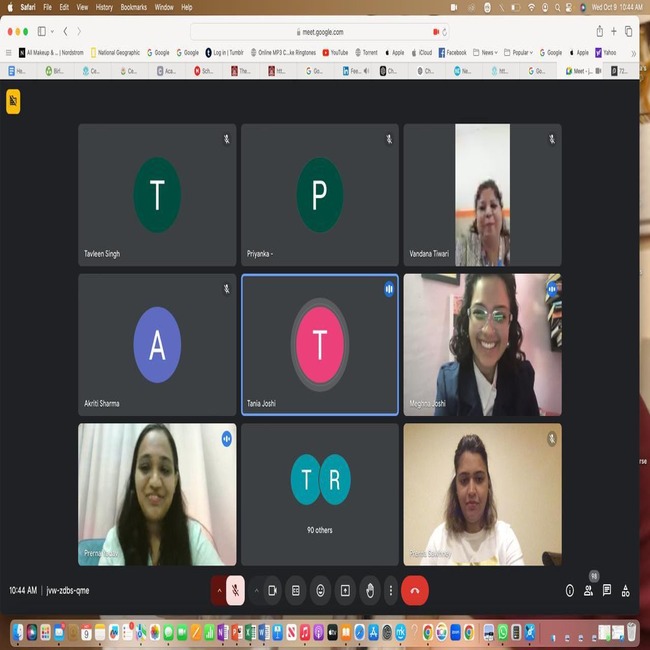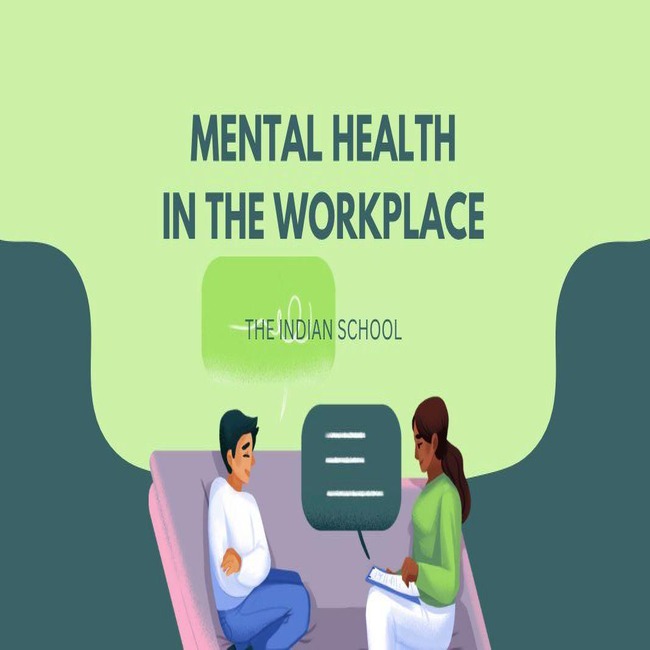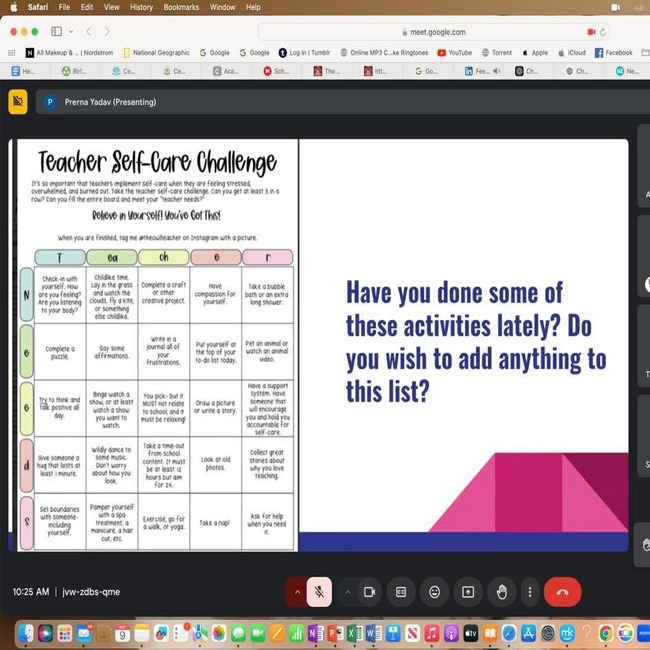Teacher workshop on Mental Health of Educators
On October 10th, in celebration of World Mental Health Day, a significant webinar titled "Caring for the Caregivers – Mental Health and Well-being of Educators" was organised by Ms Meghna Joshi, School counsellor. The session, which took place from 9 A.M. to 10:30 A.M., was facilitated by Ms Prerna Yadav, Clcounseling psychologist and Founder of Raah – The Guiding Path. This initiative aimed not only to align with this year’s theme of mental health in the workplace but also to highlight the often-overlooked psychological health and well-being of educators within the Indian education system.
The webinar commenced with a warm welcome by Ms Tania Joshi, Principal. Ms Prerna Yadav opened the session with a reflective exercise, inviting teachers to contemplate the values they associate with their profession. As the discussion evolved, participants examined the shifting paradigm of teaching—from a role focused solely on curriculum delivery to one that demands administrative skills, emotional intelligence, and adaptability, especially in the post-pandemic context where technology plays a crucial role. This multifaceted identity requires educators to navigate various roles, leading to potential pitfalls and challenges.
The conversation naturally progressed to the complexities of balancing the demands from administration, parents, and students. Teachers shared their experiences of hypervigilance at work, the challenges of adapting to students’ changing attitudes post-pandemic, and the emotional toll of extensive human interactions, including compassion fatigue. The primary objective of the workshop was to foster a non-judgmental space for these discussions, empowering educators to seek meaningful changes in their work environments.
Ms Yadav emphasised the importance of starting each day with self-checks encouraging teachers to extend this practice to their colleagues. Acknowledging that discussing mental health challenges can be difficult within a professional setting, the webinar proposed creating peer support groups within schools, akin to peer mentoring programmes for students. Strategies for new employees included developing an induction programme and pairing them with experienced mentors to facilitate smoother transitions into the school environment. Additionally, maintaining clear boundaries at work was strongly advocated.
During this part of the session, a critical distinction was made between assertiveness and aggression, particularly highlighting how gender dynamics can complicate this issue in a predominantly female workforce. The importance of fostering a constructive rather than aggressive atmosphere was underscored, especially during high-stress periods like report card writing and exam preparation. Teachers were encouraged to anticipate these stressful times, engage in regular self-check-ins, and collaboratively develop solutions to common challenges.
The workshop further explored the inner dialogues educators maintain in their daily lives, reminding participants that a "candle that burns too bright burns out quickly". To promote sustainable and healthy functioning, attendees were encouraged to integrate mindfulness practices into their routines, such as taking a moment to consciously sip water rather than multitasking mindlessly. A well-regulated nervous system was deemed essential for maintaining optimal performance and preventing cognitive overload.
Towards its conclusion, the webinar addressed the inevitability of disagreements in professional settings. Teachers were advised to use "I" statements instead of "You" statements to foster open communication and reduce defensiveness. They were also encouraged to practice self-compassion, recognising that their emotional well-being directly influences their interactions with students. This sentiment was echoed by Ms Tania Joshi, emphasising the necessity of self-love and self-preservation for effective relational dynamics.
The webinar concluded with robust participation from the teachers, marking a pioneering initiative by the School to proactively address the intersection of teacher mental health and student well-being—two areas often treated in isolation. Recognising the intellectual and emotional labor involved in teaching, the goal was to create a supportive environment where educators feel seen, heard, and validated. This initiative aims to dismantle the stigma surrounding mental health challenges and promote a culture of care among teachers, ultimately benefiting the entire educational ecosystem.















